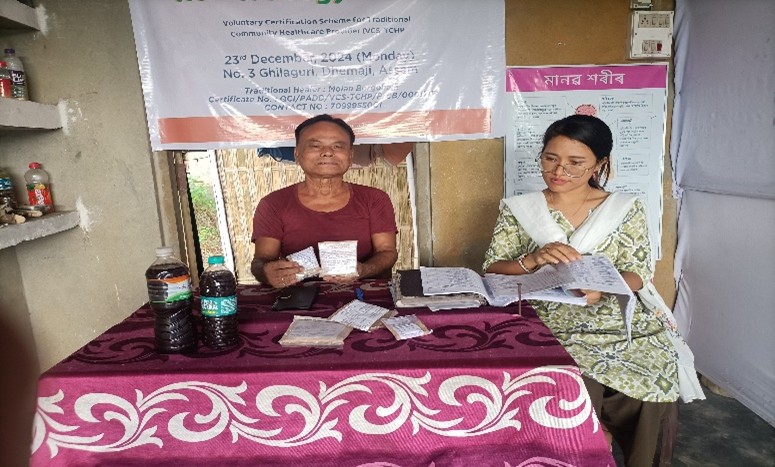
In the remote villages of Dhemaji, Assam, traditional healers have quietly cared for their communities for generations. When someone had jaundice, they’d prepare amla tonics. For persistent coughs, they’d create herbal steam treatments. This knowledge, carefully passed down through families, remained largely invisible to India’s formal health system.
But what if these village healers could work alongside modern medicine as equals?
A Foundation for Change
In early 2023, the Piramal Foundation arrived with a different approach. Rather than prescribing ready-made solutions, the team chose to listen first. They walked from home to home, gathering stories and learning about remedies honed over generations. Their message was simple and sincere: “Your knowledge matters. We’re here to help you share it—safely, confidently, and on your own terms.”
Through practical workshops, healers learned to document their recipes precisely, maintain proper hygiene standards, and explain their methods clearly. The transformation was remarkable. By late 2024, more than a dozen practitioners, including Mr. Debo Kanta Konch and Mr. Mulan Buragohain, had earned certificates from Northeast Christian University.
Suddenly, their treatment spaces became official “Arogya Kendra” – recognized healing centers working in partnership with local clinics.
From Village Wisdom to National Patents
Word of this progress reached NIPER (National Institute of Pharmaceutical Education and Research), which had paused its earlier research during the pandemic. Intrigued by the healers’ new credibility and systematic documentation, NIPER returned in 2024 to test and validate key formulations.
The results exceeded everyone’s expectations. In June 2025, two remedies – the amla-based jaundice tonic and the herbal steam mixture for respiratory relief – received Indian patents. Village wisdom that had existed for generations now carries the national seal of approval.
Building a Movement
This milestone did more than validate ancient remedies. It sparked a genuine transformation in how traditional and modern medicine could work together. Over a hundred patients have found relief through these recognized treatments, and public health workers now consult with traditional healers as partners rather than competitors.
The certified practitioners took things further by forming the Dhemaji Traditional Healers’ Federation. They’re mentoring newcomers, negotiating bulk herb purchases, and establishing quality standards across the community.
Their next ambitious goal? Launching a small enterprise to produce and market their certified remedies, creating sustainable livelihoods while ensuring that generations of village wisdom continue to thrive and reach those who need it most.
What began as respect for traditional knowledge has grown into a model for how ancient wisdom and modern validation can strengthen community healthcare together.
TAGS
SHARE





